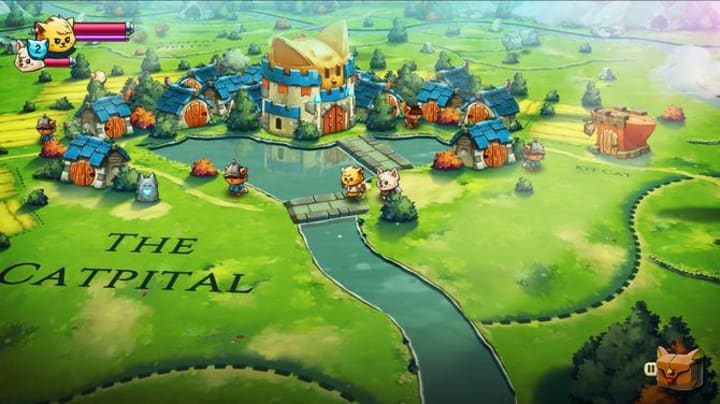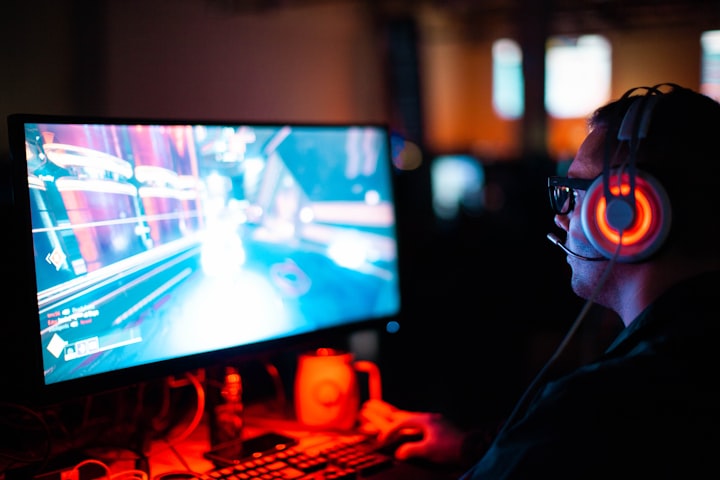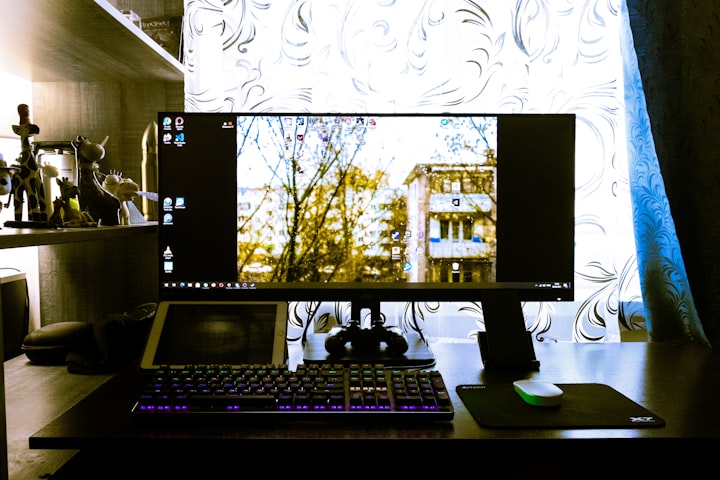Game development is not always as fun and exciting a time as one might think, as Brian Quick, founder of Singaporean game publisher Ysbryd Games, admits, "The job is tough, unpredictable and often not glamorous." To some, the game development industry is not even friendly enough for those who work in it.
"You've no doubt read many articles describing developers working overtime for months or even years on end, sometimes working 120-hour weeks for quite some time, and workplace abuse and mind control exist. Also, the pay levels in this line of work are uncompetitive."
Quirk noted that more and more Singaporean indie studios are creating games out of love and trying to maintain a work-life balance. However, the games industry here is still in its infancy.
"People often come into the industry refreshed and eager to devote themselves to this career, but after five to 10 years they realize they need to spend money on weddings, raising kids, and paying off loans, and their parents think their job is 'just playing games. The pressures of real life force them to change careers and seek better opportunities, and all this valuable work experience just disappears."
Ysbryd Games has published well-known games such as 'World of Horror' and 'VA-11 Hall-A'
Prejudice and pressure
Ghostlore, a new ARPG, was created partly inspired by Southeast Asian folklore. The developer, Andrew Chang, admits that he faced the same pressures. He worked as a designer at a handheld game studio but found it difficult to get widespread recognition for the job. Outside of his day job, he spends all his time working on Legend of Ghosts and Monsters.
"Game development takes up almost all my time and there's no time to think about whether I've achieved what a 30-year-old male should achieve. I even feel that even my relatives and acquaintances are judging me by worldly standards, as I am still single, have no car or house, and have no designer watches. I want my lifestyle to be accepted."
Fortunately, many players appreciate his work. Since its unofficial release in April, Legend of the Haunted has attracted more than 5,000 downloads. On the Steam shop, the game, which is still in its sneak preview phase, even made it to the top of the Hot 100 the week it was released. Andrew Chang plans to officially launch the game next year, but he's still debating whether to publish it on his own. He is intimidated by commercial risks and prefers to create rather than start a business.
Ghostlore is influenced by the classic ARPGs Diablo 2 and Journey to the Titans, but with elements of Southeast Asian art
Of course, there is no shortage of entrepreneurial spirit in Singapore's games industry, as exemplified by The Gentlebros CEO Desmond Wong. The studio's Cat Quest series, which is available on PC, console, and mobile platforms, has been a hit with gamers, winning the Outstanding Visual Art and Design Award at the 2017 South East Asia International Mobile Game Awards and being nominated for Handheld Game of the Year at the 21st D.I.C.E. Summit. Award nomination. The Gentlebros is currently developing the third installment of the series.
Expressing ourselves in the game
"We're very fortunate that developing games is expensive and can take a lot of time," King said that a game of the scale of Meow Meow could take two years to complete. "Since our first game, Slashy Heroes was a mediocre seller, Meow Meow is our last attempt and if Meow Meow doesn't sell either, we'll have to rethink our path in life."
Wang worked for Glorious Tecumseh in Singapore, where he was paid quite well, but he and a few colleagues later decided to leave and start their own business, co-founding The Gentlebros. he didn't enjoy his job at the 3A game company. "You feel like a small cog in a huge machine, and nothing you do matters."
Nowadays, as the company's CEO, artist, and designer, he is very conscious of maintaining a work-life balance. Workdays usually start at 10 am and finish at 5 or 6 pm. "It's important to have a balanced lifestyle and I enjoy cycling and hiking and sometimes incorporating life experiences into the creation of games."
"Meow vs Dragon is an open-ended RPG series set in the world of Meow Cat

One day at sunset, Wang was happily riding his bike through a canal, and that experience became his inspiration for building a scene in the game. "These moments in real life can have a positive impact on one's creativity."
King also revealed that he and his colleagues often receive emails from players, some expressing their gratitude to the development team for The Gentlebros creating a piece that helped them overcome depression or adversity. "A great game will often contain some element of the creators themselves, and in our game, all the stories are based on our past experiences."
A passion that lasts forever
James Barnard, the founder of Singapore-based independent studio Springloaded, was fired from two major companies, including Lucasfilm Animation. Barnard says that he was fired mainly because he was too creative and sometimes came across as "aggressive". However, the experience of being fired didn't leave him with a bad taste in his mouth.
"When I left Lucas about 10 years ago, I reminded myself to live every day happily, to be creative, and to stay away from office politics." Barnard said, "During those years working for Lucas, whenever I came up with an idea I had to report it at every level, and after many layers, it was rejected ...... It was so frustrating."
After leaving Lucas, Barnard developed three games on his own in just one year, taking sole responsibility for working on art, programming, music, and marketing. "It was all done badly." He laughs, "Sometimes I'd be wandering around the app shop and suddenly I'd think I too had a chance to be a millionaire in an hour, and it was hard to contain that excitement inside. But the reality is that only three people have downloaded my game, and one of them is me! It was quite embarrassing, but I didn't want to stop."
Springloaded's game 'Wizbang Dungeon' took four years of spare time to make
Barnard had to move out of his flat and share a room with other people, and from there he was forced to scrimp and save, taking a part-time teaching job at university while making mini-games to make ends meet.
After a while, Barnard's career finally saw the light of day when US publisher Kongregate signed him up for Tiny Dice Dungeon, a handheld game. Barnard says he started to study the market trends and the needs and ideas of players from that point on.
Talent is crucial
From Decks & Dungeons to the slightly quirky GORSD, Springloaded's games are all about cute pixel graphics. The studio's new title, Let's Build a Zoo, was released on Steam last year and has attracted more than 100,000 downloads so far, with a console version coming soon.
"When I recruit staff for the studio, I look for people who are willing to devote themselves to game development. I'm more interested in seeing how much they love the job than the candidate's resume and qualifications. If he's enthusiastic and talks to you about what games he likes and why then he'll be a great colleague."
Singapore is a small country and the games industry is small. Here, talent means everything.
Mini Dice Dungeon has a great idea of fighting monsters by rolling dice and breaking through the levels entirely by luck
Sean Chew, CEO of BattleBrew Productions, another Singaporean game studio, points out that at their company, all the employees are former colleagues, classmates, or friends made while shopping at trade shows. "It's a creative industry where everyone is involved in the game development process, so it's important to work with people you trust both in your professional field and on a personal level."
BattleBrew has been around for five years now and currently employs 11 full-time staff, represented by the award-winning Battlesky Brigade: Tap Tap Tap and one of the first games to launch on Apple Arcade, Battlesky Brigade: Harpooner).
Like many start-up teams in Singapore, their sources of funding in the beginning stages included the founders' savings, family donations, and angel investment. "However, completing each round of investment is more like getting ammunition and gear when everyone else is relying on you to make ends meet, and you don't celebrate with glee every time ...... In a sense, game development is like fighting on multiple fronts at the same time - it burns too much money. "
Battlebrew's chief executive Cheuk
Dreaming big
At BattleBrew, Zhuo and many of his colleagues wear multiple hats. "I'm the CEO and design director, but sometimes I'm also the gatekeeper. One of our programmers is an expert in battle design, and there's another designer with exceptional skills in community management and social media operations."
If more staff were recruited, that would inevitably lighten the load on everyone, but Cheuk doesn't see that as a priority for the company. "If we have three teams that are great of course because we can work on other games alongside our flagship game. But I'd feel a bit strange if the company was so big that I couldn't remember the names of all my colleagues."
Cheuk believes that developers tend to work more closely together in teams that are relatively lean in size, although other studios such as Mighty Bear Games are looking to expand their team size as much as possible.
"We're almost 60 people now, but the best development teams in the world have hundreds, if not thousands, of members." Mighty Bear CEO Simon Davies says, "We're not interested in staying lean in size, so I never think of other indie studios as competitors either. Instead, I'm more focused on services like Netflix, Disney+, and mega-games like Call of Duty."
BattleBrew attended this year's PAX East with their acclaimed title Cuisine
Mighty Bear specializes in making handheld games, with two of the company's games, Butter Royale and Disney IP-derived MOBA handheld game Disney Melee Mania, both being Apple Arcade exclusives.
Davis joked that the game development process often involves a lot of crying and complaining, as the job is particularly difficult. But with a background of having worked for industry giants such as Ubisoft and King, he feels he is more disciplined than most indie studio leaders. "I know how hard it is to get things done. We should be in a good mood to work, but at the end of the day, we always have to finish the game."
For the past while, Davies has been looking for investment in the US and Europe, as Southeast Asian investors prefer to invest in fintech or e-commerce platforms, are risk-averse, or don't understand the games industry. "I was often asked in 2016 when I started the business why I chose to start a company in Singapore. My answer was that I had faith in the market and believed that Southeast Asia would be the next frontier market. The talent in Singapore can compete with world-class talent - they just need more support."







Comments
There are no comments for this story
Be the first to respond and start the conversation.